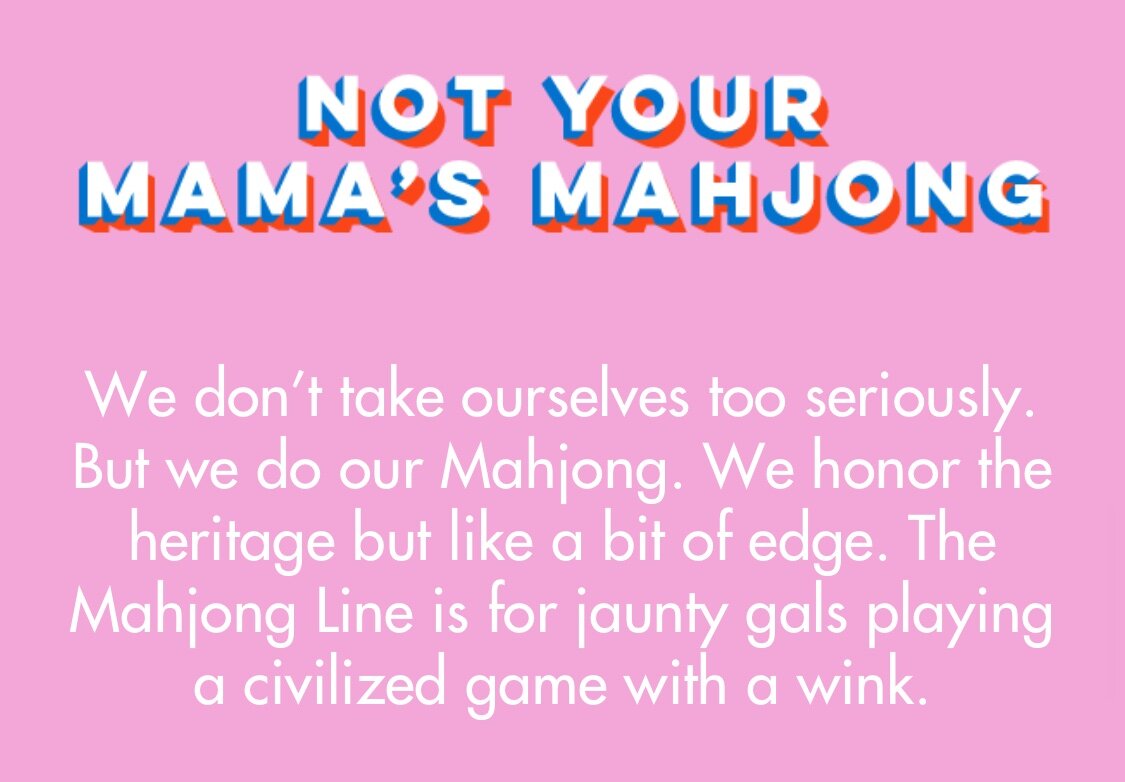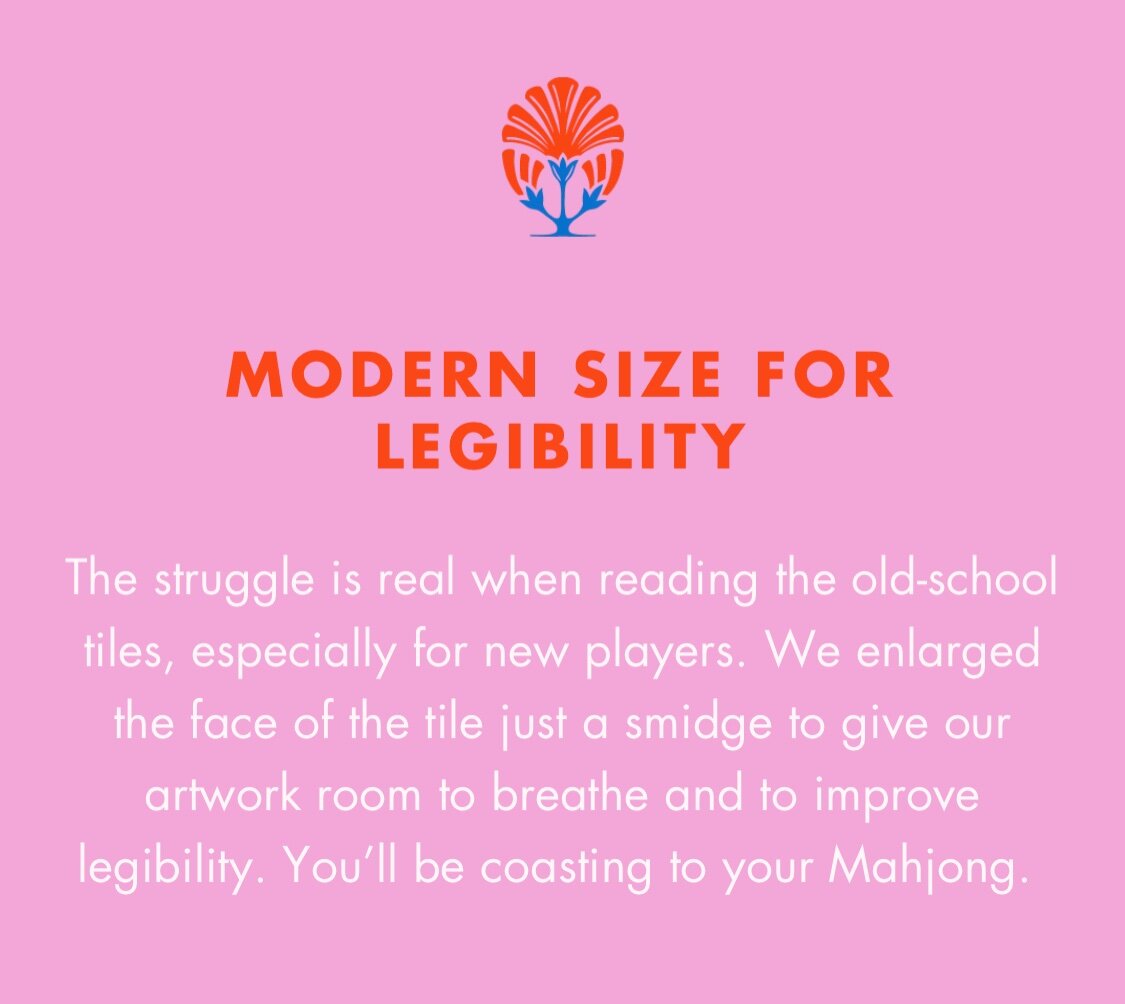Three White Women are Colonizing Mahjong with $325 Luxury Sets
The Mahjong Line’s “partners in crime”. L to R: Annie O'Grady, Kate LeGere, and Bianca Watson. Image via The Mahjong Line.
It never ceases to amaze how white people can find new ways to colonize BIPOC’s cultural heritage. The Mahjong Line was founded after Kate LeGere's quest to purchase her first mahjong set led to disappointment. “Nothing came close to mirroring her style and personality,” says their site. LeGere enlisted friends Annie O'Grady and Bianca Watson to give the game a “respectful refresh,” and “bring Mahjong to the stylish masses.”
Still life featuring ambiguous “worldly” 𝘰𝘣𝘫𝘦𝘵𝘴. Image via The Mahjong Line.
In now-deleted Instagram posts, “Player Profiles” of mostly white women were shared alongside colorful still lifes of game tiles styled with 𝘰𝘣𝘫𝘦𝘵𝘴 like cloisonné bowls and travel books. The tile sets range from $325 to $425 (excluding racks or playing mats) and have updates to the traditional suites. Flower becomes flour, bamboo is now “bams”, and Chinese characters are replaced with little lightening bolts. Their tiles are “modern size for legibility” because “the struggle is real when reading the old-school tiles”.
They invite you to “celebrate the joie de vivre of mahjong” for no reason beyond white women loving French phrases? Meanwhile, the references to Mahjong’s origins are scant, a mere three links under "history" and lines in the FAQ that do more to justify the whitewashing of the game than provide any history. “Well, all the madness of mahjong began in China hundreds of years ago so they own that distinction fair and square,” it reads.
The exact history is unknown, but it's believed mahjong originated in Shanghai sometime in the mid to late 1800s. It grew wildly popular in Western culture in the 1920s, leaving a wealth of appropriation artifacts behind, including a version from Parker Brothers. It’s become a significant to American culture, especially amongst Chinese and Jewish women, and has been studied by Stanford scholars. The site mentions none of this, but does have a page of haikus (which are Japanese) about the game.
A Mahjong Haiku. Image via The Mahjong Line.
The Mahjong Line's cultural appropriation parallels that of Lucky Lee’s, the “healthy alternative” Chinese restaurant by Arielle Haspel that shuttered less than a year after opening, following a wave of negative publicity. Will The Mahjong Line suffer the same fate?





